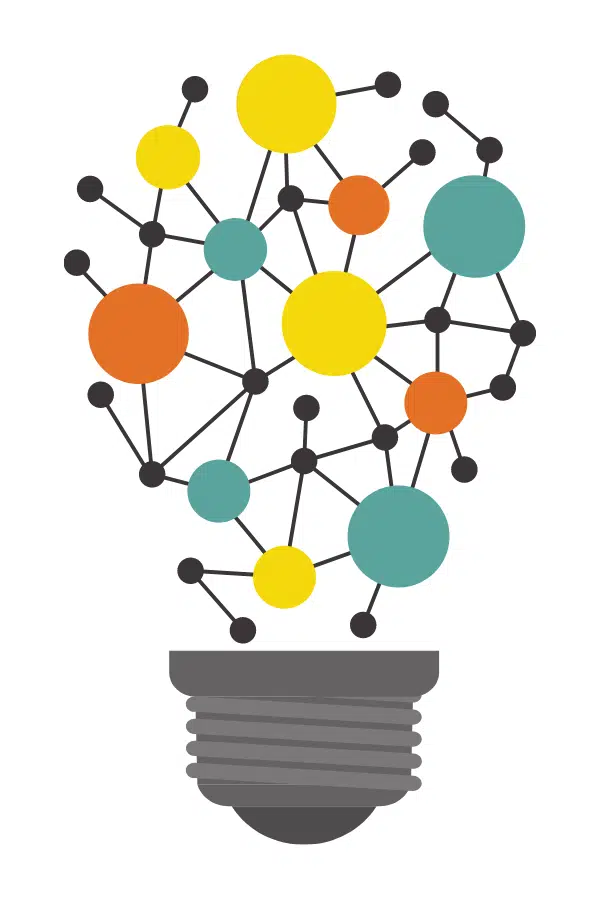Strengthening Social Connectedness
A Visible Network Labs Webinar Series
Join us as we explore innovative ideas and new solutions for addressing inequity in health, education and overall quality of life using a social connectedness approach.
Explore the link between social connectedness and quality of life.
Our new webinar series will include a mix of VNL experts, community partners, researchers, and others with experience involving social connectedness. We will look at the types and causes of adverse connectedness, such as social isolation, discuss the ways it affects different groups and communities, like older adults and children, and explore potential solutions involving technology, policy, and nature.
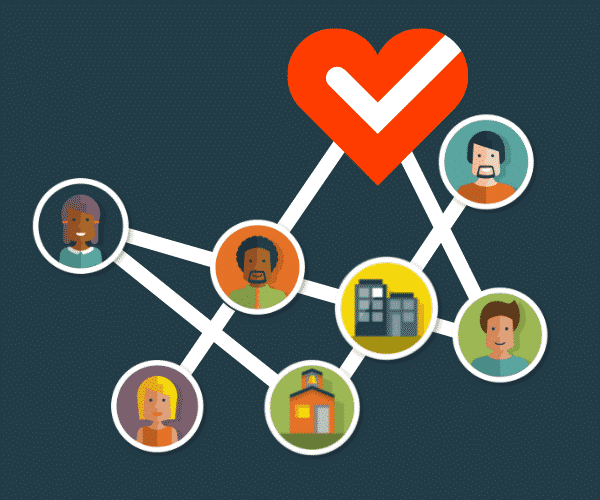
Webinar Series Schedule
Click a month in the list below to see more information and register for each webinar. There are also links to watch On-Demand recordings for previously completed webinars.
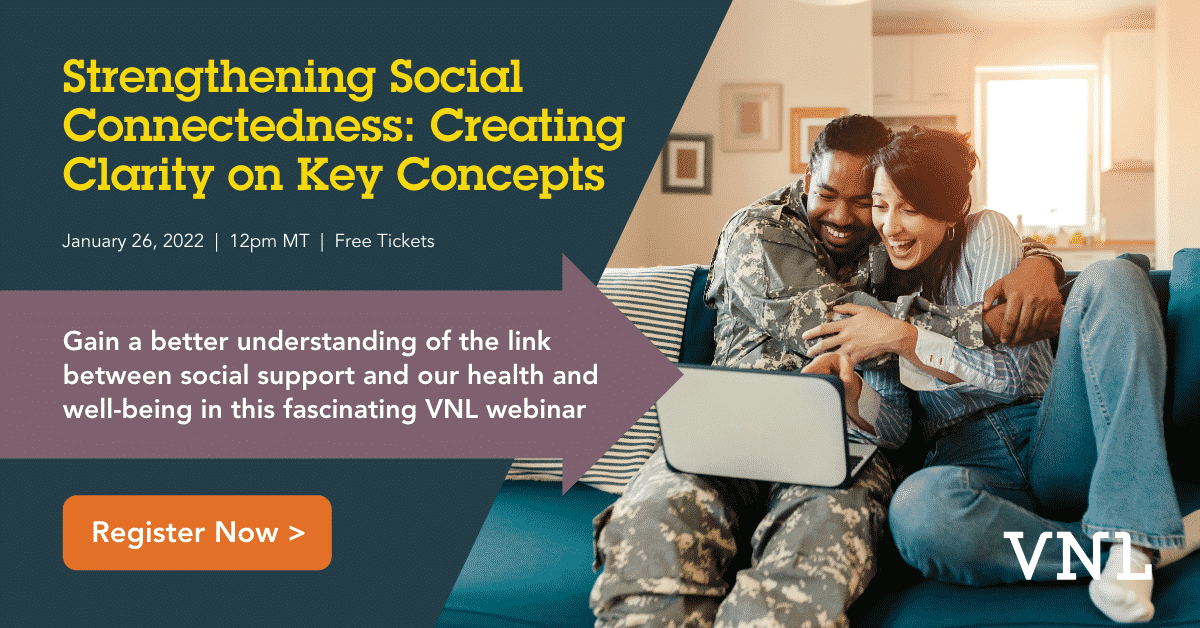
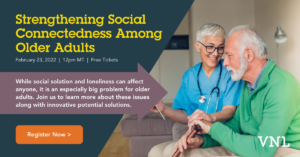
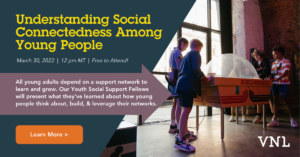
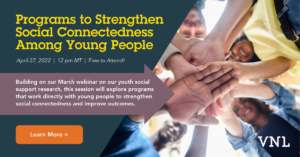
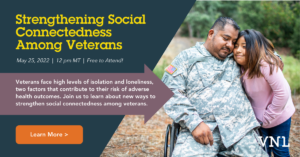
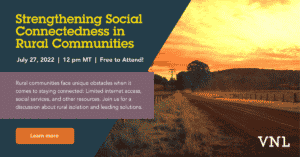
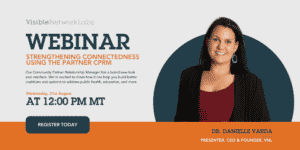
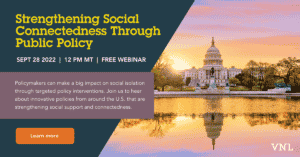
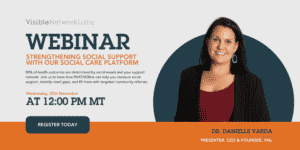
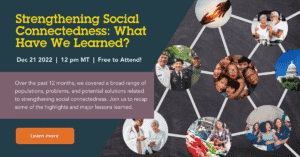
Social Connectedness Webinar Archive
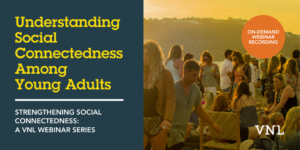
Understanding Social Connectedness Among Young Adults: March 2022 Webinar
Social connectedness is a major factor in a young person’s development and growth. From the moment we are first born, we are dependent on a network of social support, including parents, siblings, neighbors, family, and friends. These individuals and organizations serve as mentors and peers,
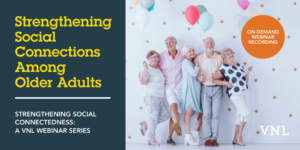
Strengthening Social Connectedness Among Older Adults: February 2022 Webinar
We have a social connectedness crisis in America among older adults. Studies and surveys show that 1 in 4 people over the age of 50 feel lonely a significant amount of the time, and 1 in 3 are socially isolated. These problems have real, significant
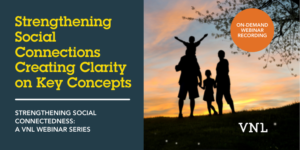
Strengthening Social Connectedness: Creating Clarity on Key Concepts
What is social connectedness, and how is it different from social isolation and loneliness? How does connectedness impact our health, and why is it so critically important? As we continue to work our way through the COVID-19 pandemic, many people are asking these questions about
Connect with our Team!
Contact the VNL team to demo PARTNER™ or discuss a research or evaluation project. We can help you learn more about our services, help brainstorm project designs, and provide a custom scope based on your budget and needs. We look forward to connecting!
Email our team: hello@visiblenetworklabs.com
Send a message: Contact Us Here
